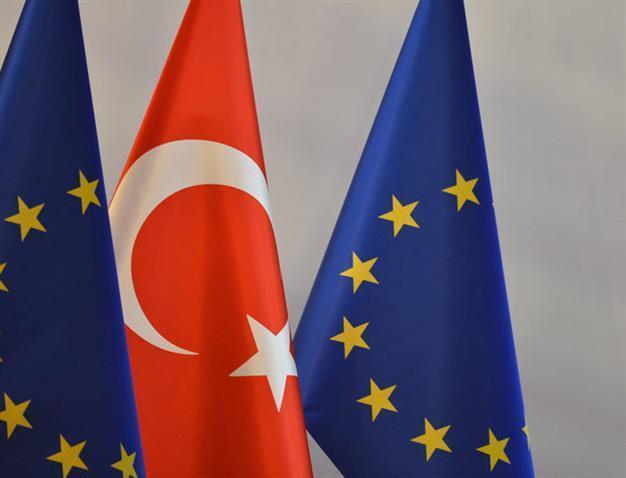Turkey slams critical EU report as ‘unfair’ on judiciary, freedoms
ANKARA

Turkey has swiftly dismissed the European Union’s criticism about the dramatic curtailing of press freedoms as well as significant shortcomings affecting the independence of the judiciary, while calling on the European bloc to appropriately interpret “facts” about followers of the government’s ally-turned foe U.S.-based preacher Fethullah Gülen.
Turkey has also refuted the EU’s worries about the political ambitions of President Recep Tayyip Erdoğan, the country’s president after a decade as prime minister, and is widely seen as wanted to turn the presidency into a powerful executive system.
“While reforms launched in recent years within the framework of political criteria have been mentioned in the report generally in a positive way, it is seen that criticism has predominantly intensified on the rule of law and judicial system and freedoms of assembly and press,” Turkey’s EU Ministry said in a written statement released in Ankara on Nov. 10, only hours after the European Commission released its progress report on Turkey in Brussels.
“It is being evaluated that some findings in these fields which appear in the report don’t adequately reflect reform work by our country; that they are unfair, even partly intemperate; and that they overlook the balance of freedom and security, which need to exist in democratic states governed by the rule of law,” said the EU Ministry.
“It is obvious that making comments and reaching findings that are based on generalizations in regards to cases about which judicial processes are ongoing would first and foremost be contradictory to the principle of independence of judiciary. In recent years, in order to strengthen independent and impartial judicial power and freedom of expression, Turkey adopted six Judicial Reform Packages. The Judicial Reform Strategy, which has been updated this year, is the clearest indication that work on this matter will continue by gradually growing,” it said.
“Additionally, it is not possible to accept considerations about the use of authorities, granted to him by the constitution, by our President [Erdoğan] who was elected by a popular vote for the first time,” the ministry highlighted.
“It is seen that reference has been made to the parallel structure in some parts of the report,” it said, using a term coined by Erdoğan and the government to describe Gülen’s followers and their influence in public office.
“Turkey will continue with determination its fight which it has been conducting against this structure that threatens national security, disrupts public order, harms internal independence of the judiciary and runs illegal activity under the guise of domestic and external legal [structures]. In this respect, we expect the EU to appropriately read the facts about the parallel structure and display required sensitivity against his unlawful structure and its activities,” the ministry added.
Earlier this week, police detained dozens of people including senior police officers and bureaucrats, alleging they were members of a “Gülenist terror group” that had sought a purge of the army by engineering a 2012 espionage trial.
Gülen, living in exile in the United States since 1999, is the subject of an arrest warrant in Turkey on charges that he sought to topple Erdoğan, a charge that carries a jail sentence of up to 34 years. Gülen, who is the head of an international network of schools and businesses, denies the allegation.
Erdoğan’s campaign against Gülen continued in the months leading up to the Nov. 1 snap elections. On Oct. 27, Turkish authorities took over the management of companies including newspapers and TV stations linked to the cleric.
 Turkey has swiftly dismissed the European Union’s criticism about the dramatic curtailing of press freedoms as well as significant shortcomings affecting the independence of the judiciary, while calling on the European bloc to appropriately interpret “facts” about followers of the government’s ally-turned foe U.S.-based preacher Fethullah Gülen.
Turkey has swiftly dismissed the European Union’s criticism about the dramatic curtailing of press freedoms as well as significant shortcomings affecting the independence of the judiciary, while calling on the European bloc to appropriately interpret “facts” about followers of the government’s ally-turned foe U.S.-based preacher Fethullah Gülen.